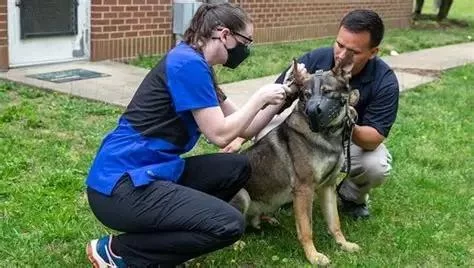- 1-Understanding-veterinary-medicine-degree - What the degree entails and career outlook
- 2-Educational-pathways-to-veterinary-degree - Prerequisites, undergraduate studies, and veterinary school
- 3-Application-process-and-admission-requirements - How to successfully apply and get accepted
- 4-Life-as-a-veterinary-student - Curriculum, practical experience, and challenges
- 5-Career-opportunities-after-degree-completion - What comes next and how to thrive
1. Understanding Veterinary Medicine Degree
Getting a degree in veterinary medicine is the essential first step for anyone passionate about animal health and welfare. This degree prepares students to diagnose, treat, and prevent diseases in animals while promoting public health. The demand for qualified veterinarians continues to rise, opening diverse career paths in private practice, research, wildlife conservation, and more.
The degree itself is rigorous and highly specialized, designed to equip graduates with both theoretical knowledge and hands-on clinical skills.
2. Educational Pathways to Veterinary Degree
2.1 Undergraduate Preparation
Most veterinary schools require applicants to complete an undergraduate degree or coursework emphasizing biology, chemistry, physics, and animal science. This foundational knowledge is crucial to succeed in veterinary school.
2.2 Veterinary School
Veterinary medicine programs typically last four years and combine classroom instruction with clinical rotations. Students learn anatomy, pharmacology, surgery, and animal behavior, progressing from basic sciences to advanced clinical care.
2.3 Licensing Requirements
After earning the degree, graduates must pass national and state exams to become licensed veterinarians, ensuring they meet professional standards.
3. Application Process and Admission Requirements
Applying to veterinary school is competitive. Strong academic records, relevant experience such as volunteering or internships, and well-crafted personal statements are essential. Letters of recommendation and interviews assess candidates’ commitment and suitability for the profession.
Being proactive about gaining animal care experience and understanding the demands of veterinary medicine improves admission chances.
4. Life as a Veterinary Student
Studying veterinary medicine is challenging but rewarding. Students engage in rigorous coursework and practical training, often working long hours in clinics or research labs. Balancing academics and self-care is critical, as is building relationships with mentors and peers.
Many students find that hands-on experiences with animals solidify their passion and prepare them for the realities of veterinary practice.
5. Career Opportunities After Degree Completion
Graduates with a veterinary medicine degree can pursue various careers, including clinical practice, specialty fields like surgery or dermatology, research, public health, and wildlife conservation. Continuous learning and professional development are vital to success.
For those ready to embark on this path, investing in the right educational resources and guidance is key.
If you’re serious about learning how to get a degree in veterinary medicine, consider exploring comprehensive preparatory programs and resources that can boost your application and readiness. With dedication and expert support, your dream of becoming a veterinarian is within reach.
Start your journey today with trusted educational tools and services designed to help you succeed in veterinary medicine.












